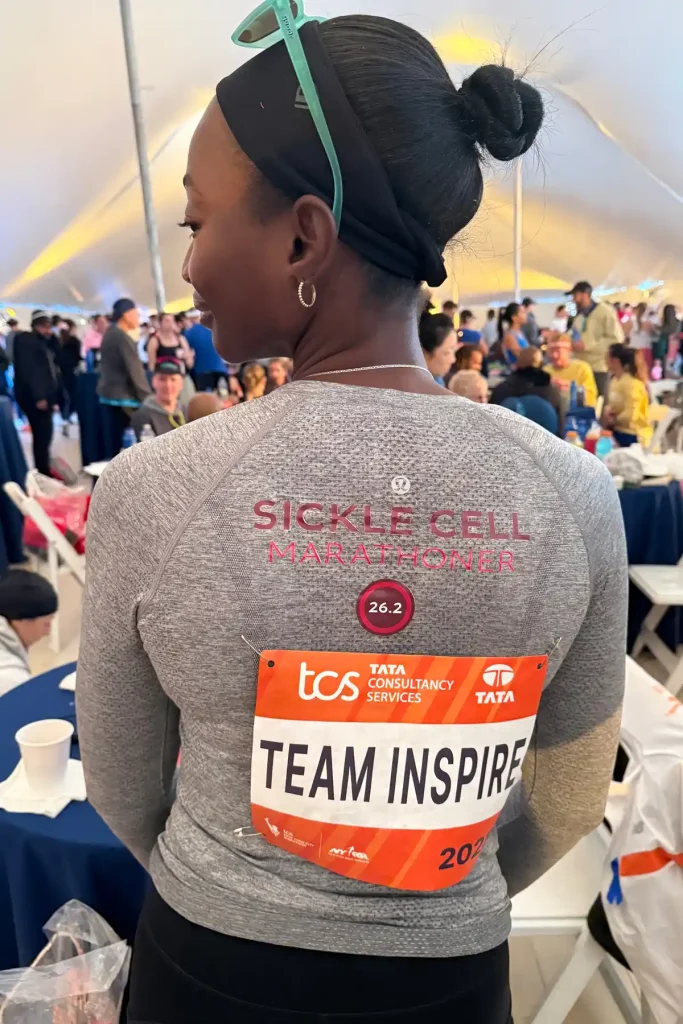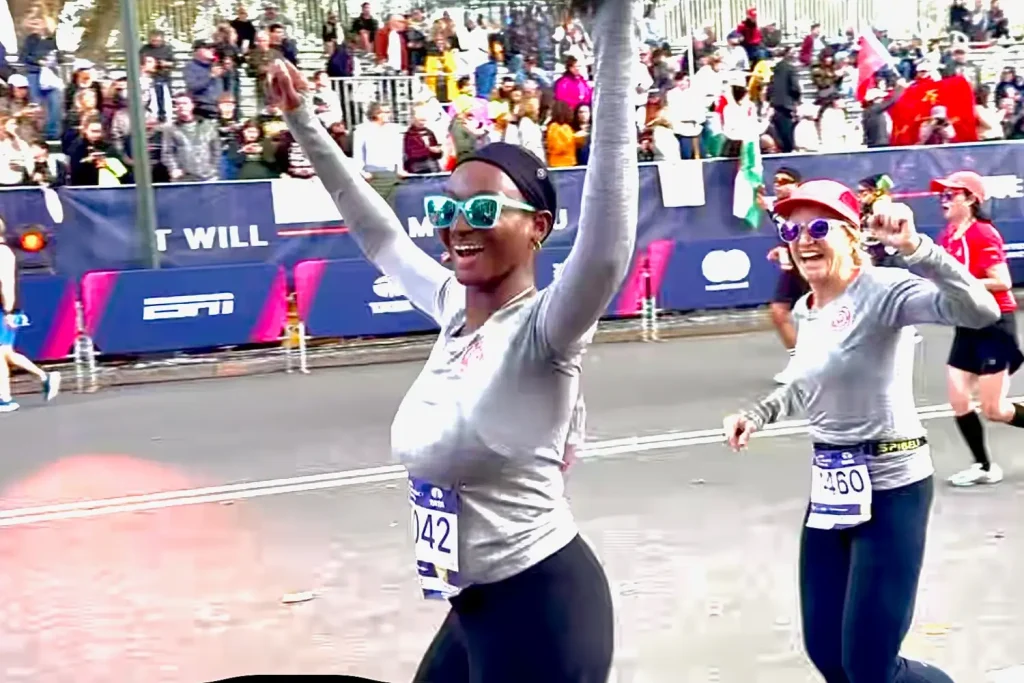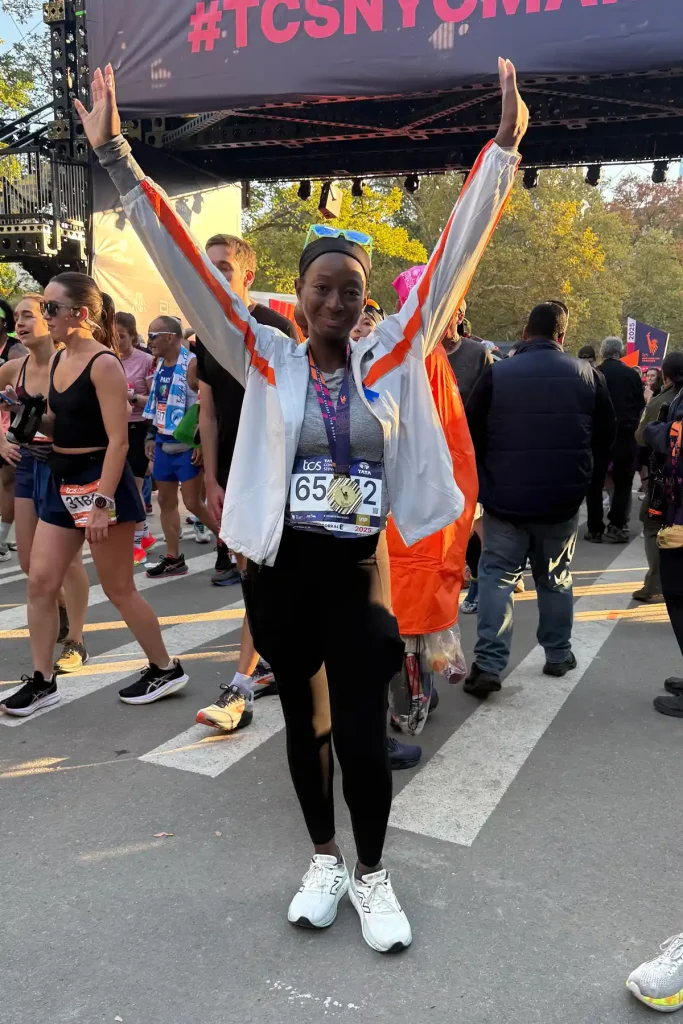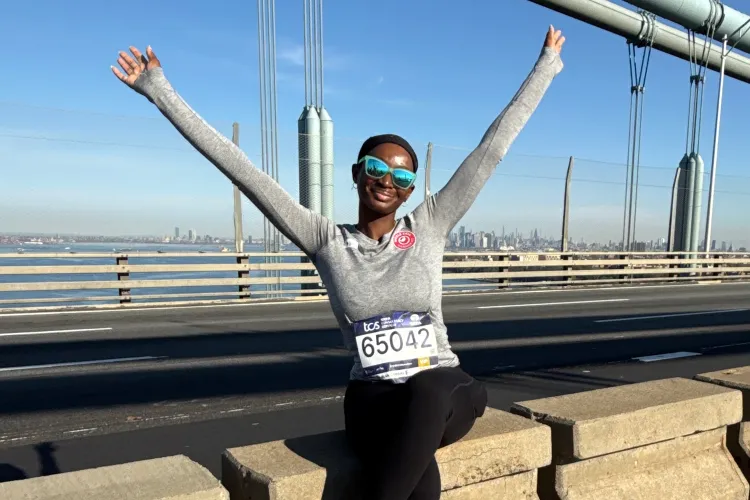Amy Cohen Becomes the First Person with Sickle Cell Anemia to Complete a Marathon — “A Lifelong Goal” That Redefines Human Endurance
When Amy Cohen crossed the finish line of the New York City Marathon, she didn’t just complete 26.2 miles — she made history. The 29-year-old Massachusetts native became the first person living with sickle cell anemia to officially finish a marathon, a feat once thought impossible for anyone with the disease. It was a moment she described as “a lifelong goal” — and one that now serves as inspiration to thousands of people around the world battling the same condition.

For Cohen, the moment was years in the making. Born with sickle cell anemia, a rare genetic blood disorder that causes red blood cells to change shape and block oxygen flow, she grew up being told that her body had limits. “I’ve been told all my life what I couldn’t do,” she told People in an exclusive interview. “So to finally prove to myself that I can, it’s emotional.”
Sickle cell anemia affects roughly 100,000 people in the U.S., primarily those of African and Hispanic descent. The condition can cause severe pain crises, fatigue, and organ complications — making endurance sports especially risky. Cohen’s first major sickle cell episode struck when she was just 14 years old, leaving her bedridden with pain so severe she thought she might die. Doctors often warned her against strenuous activity, but she refused to let her diagnosis define her.
That determination became the foundation of her historic run. Her journey to the marathon began three years ago, when she decided to train under medical supervision through Mass General Brigham’s Comprehensive Sickle Cell Disease Treatment Center. She was guided by Dr. Sharl Azar, the program’s medical director, and fitness coach Jennifer Miramontes, who developed a slow, carefully monitored plan that allowed Cohen to build stamina safely over time.
At first, Cohen could barely jog for more than a few minutes without discomfort. But over months of disciplined training, her endurance improved. She learned to listen to her body, track her oxygen levels, and recover properly after every session. “Every run was an experiment,” she explained. “I had to be incredibly cautious, but I also had to believe I could do more.”

Her goal was clear — to not only run a marathon but to change the narrative about what living with sickle cell means. “There’s a misconception that people with sickle cell are fragile,” she said. “We’re strong. We just have to approach things differently.”
On race day, Cohen lined up alongside more than 50,000 runners at the base of the Verrazzano-Narrows Bridge in Staten Island. The sun was bright, the air crisp, and the stakes higher than ever. “I kept telling myself: pace, breathe, hydrate,” she recalled. “I wasn’t there to compete. I was there to finish.”
Her strategy was meticulous — alternating between jogging and walking to manage oxygen levels, stopping at every hydration station, and monitoring for early signs of fatigue. The support of spectators, fellow runners, and volunteers carried her through the toughest miles. By mile 20, pain set in, but she pushed forward, focusing on her mantra: “Just one more step.”
After six hours, nine minutes, and twenty-seven seconds, Cohen crossed the finish line in Central Park — arms raised, tears streaming down her face. “It was the hardest thing I’ve ever done,” she said. “But it was also the most freeing.”
Her accomplishment immediately drew attention from the medical community. Dr. Azar called her finish “a breakthrough moment for sickle cell warriors everywhere.” In his words: “Amy showed the world that with the right guidance and determination, people with this condition can achieve extraordinary things. She’s given hope to so many.”
Cohen’s story has since become a symbol of perseverance for those living with chronic illness. Across social media, fellow patients shared messages of gratitude and pride, using hashtags like #SickleCellStrong and #RunForHope. “She ran for all of us,” wrote one commenter. “For every kid who’s ever been told they can’t.”

But Cohen is quick to remind others that her marathon journey was medically supervised and not without risk. “This isn’t something every sickle cell patient can or should try without proper care,” she emphasized. “But I do hope my story encourages people to dream bigger — and to work closely with their doctors to find their own version of freedom.”
Her message resonates far beyond running. Sickle cell patients often face systemic healthcare inequities, underfunded research, and limited awareness — factors that contribute to late diagnoses and fewer treatment options. By completing a world-famous marathon, Cohen didn’t just break a physical barrier; she brought visibility to a community long overlooked.
Her next step is advocacy. Cohen has launched The Patient Room, a healthcare consulting company dedicated to improving patient education and bridging communication gaps between doctors and people with chronic illnesses. “Too often, patients are told what they can’t do,” she said. “I want to change that. We deserve to be part of the conversation about our own care.”
She also plans to mentor other individuals with sickle cell disease who want to explore fitness safely. “Movement doesn’t have to mean marathons,” she said. “It can mean walking, swimming, stretching — whatever helps you connect with your body and feel strong.”
As for whether she plans to run again, Cohen smiles. “Never say never,” she said. “Right now, I’m still recovering. But one thing I’ve learned is to never limit myself.”
Her story has inspired countless people across the world — not only for its athletic achievement but for its message about resilience and possibility. What began as a personal goal has become a movement of hope, strength, and redefinition.
“I used to think sickle cell controlled me,” Cohen reflected. “Now I know I control how I live with it. This finish line wasn’t the end — it was the start of something new.”
With every step she took through the streets of New York, Amy Cohen shattered misconceptions and reminded the world that determination can defy biology, and that hope — when paired with preparation and courage — can rewrite history.


